Why The Simpsons' attempt to introduce Deaf representation isn't as progressive as it seems
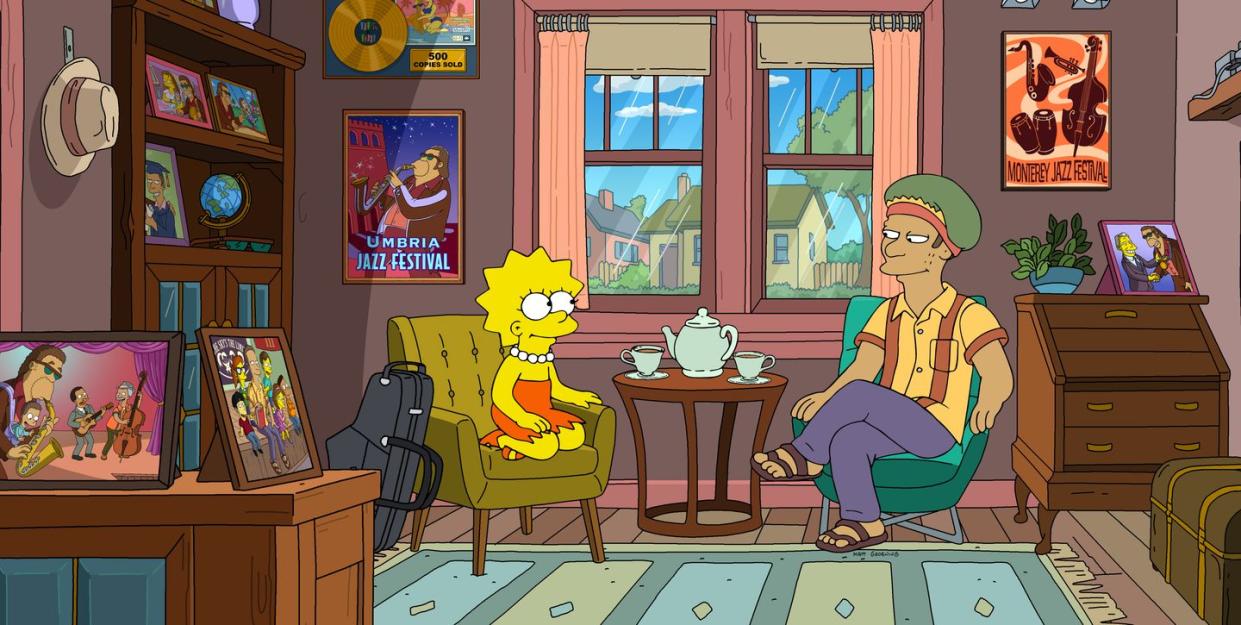
- Oops!Something went wrong.Please try again later.
The Simpsons season 33 episode 17 spoilers follow.
The Simpsons made history at the weekend when it aired an episode featuring an American Sign Language and a Deaf voice actor – but I wish it hadn't.
Riding off the success of the Oscar-winning CODA, 'The Sound of Bleeding Gums' – undoubtedly a play on Amazon's Sound of Metal – sees Lisa learn her saxophonist idol Bleeding Gums Murphy had a Deaf son named Monk (voiced by John Autri II) who dreams of having a cochlear implant.
While I have no criticisms of Autri’s involvement – Deaf actors playing Deaf roles sadly remain a rarity in a fair amount of the entertainment industry – it's unfortunate he had to appear in a story which falls right into the harmful tropes that Deaf activists such as myself have been trying to break down all this time.
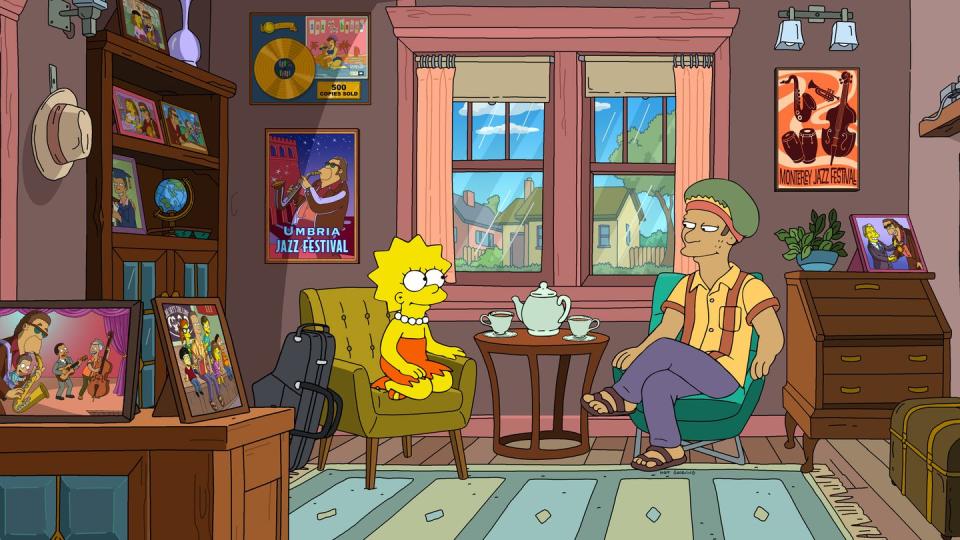
In an interview with Variety, Loni Steele Sosthand revealed that the character of Monk Murphy was based "at least somewhat" on her own brother. And so, a hearing gaze on the Deaf experience was produced – through the eyes of Lisa, and with the same tired narratives.
When Lisa and Monk meet, the latter soon explains that music is "not something [he] can enjoy", which is one of the biggest misconceptions that plagues my community. Even if a Deaf person does not have the residual – or "left over" – hearing to pick up on elements of music, they can experience and enjoy music through vibrations and low bass notes.
To claim the art form is beyond the reach of any Deaf person is harmful misinformation delivered at a time where I beg writers to stop framing stories about deafness through the lens of music. Music is neither the antithesis or the antagonist of the Deaf community.
We learn Monk gets by through lipreading, and while a scene in which we see how little speech can be read on the lips (30-40% is an often-cited statistic) is enlightening and welcome representation, it's undermined by Lisa then challenging Monk to read her lips and find out she's Bleeding Gums' "biggest fan!"
Most Deaf people, myself included, will tell you of at least one instance where a cocky hearing person decides to mock our lipreading ability. Their smirk visible through the gaps in their fingers, they'll cover their mouths and ask us if we can still lipread them, in what they think is a test of our ability, rather than of our patience. Lipreading isn't a party trick or gimmick; it's a lifeline for navigating environments which aren’t made accessible for us.
I know I say all of this as a Brit unaware of the deeper, nuanced discussions around deafness and disability in the US, but 'The Sound of Bleeding Gums' is so painfully close to explaining an important concept about accessibility in everyday society: the social model of disability.
Essentially, it argues that it isn't so much our conditions which disable us, but societal attitudes and infrastructure. A common example is a wheelchair user being disabled by the lack of a ramp to enter a building, rather than their physical disability.
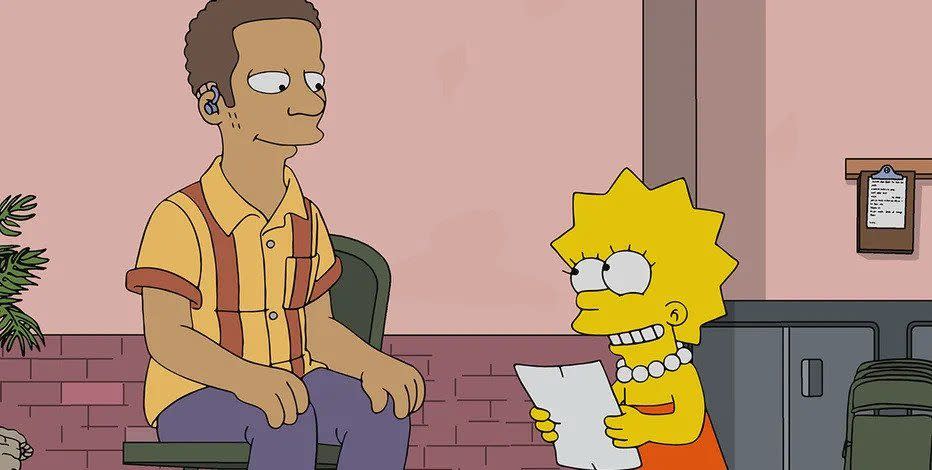
In this episode of The Simpsons, we see a glimpse of that in Monk being unable to lipread a moustached individual from a music licensing company. We then see another glimpse in his stern response to Lisa's problematic saviour complex, where Monk explains that he's not anybody's cause and that he loves who he is as a Deaf person.
What a shame, then, that this is soon superseded by the focus on a cochlear implant operation as a "miracle cure" – to quote comments made in a gag by Dr Hibbert.
Now, to be absolutely clear, we can and must respect the autonomy of Deaf people to pursue hearing technology to support them if they so wish. However, the issue comes with 'The Sound of Bleeding Gums' – like its probable namesake – framing this as a 'cure' or a 'fix' for deafness. It isn’t.
If someone was to remove their cochlear implant to sleep at night, they would still be Deaf. Even with my hearing aids in, I can still find it hard in noisy environments where they struggle to focus on the conversation in front of me, as opposed to the other background noise in places such as pubs, bars and restaurants.
The clue is in the name. These devices 'aid' hearing, rather than restore it, and it's dangerous for The Simpsons to suggest otherwise – even as a joke.
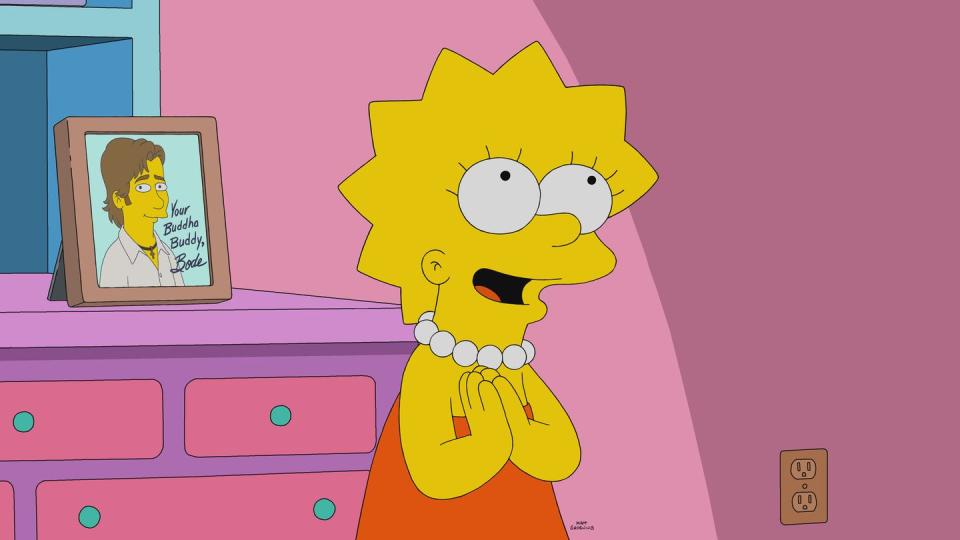
Not content with deploying this harmful misconception, the episode concludes with Monk having had the cochlear implant operation (at a speed which is likely impossible in the real world) while listening to his late father's jazz music on his memorial bridge.
It’s something fresh out of a sensationalist viral news article – the ones where a wriggling baby, fitted with a hearing aid, has the technology switched on and immediately bursts into tears, the comments awash with nauseating remarks praising the deaf baby or individual as "brave", or the video footage as "powerful".
When notes from a Bleeding Gums vinyl make their way into Monk's implant, a single tear emerges from his eyes. Some will likely fawn over the moving conclusion to the episode and the preservation of the saxophonist’s legacy, but these scenes – whether in the form of a viral video or an animation – paint a toxic mistruth.
I remember visiting an exhibit at the Victoria and Albert Museum in London a few years back, in which cochlear implant users explained the sensations that come in the moment of the 'switch on' we see shared around social media on a regular basis. To suggest that every Deaf person is emotional when the moment happens is to massively oversimplify the complexities that come with the Deaf experience.
Cochlear implant users interviewed talked of the most overwhelming white noise when the switch-on occurred, underscoring the basic fact that they can't always interpret sounds straight away. In some instances, it can take further fine tuning to make the devices comfortable for the user.
Some Deaf individuals have argued that the crying babies we see on our social media feeds are not tearful out of joy, but because they are overwhelmed by the sensory input. We need a more critical eye applied to this sensationalism.
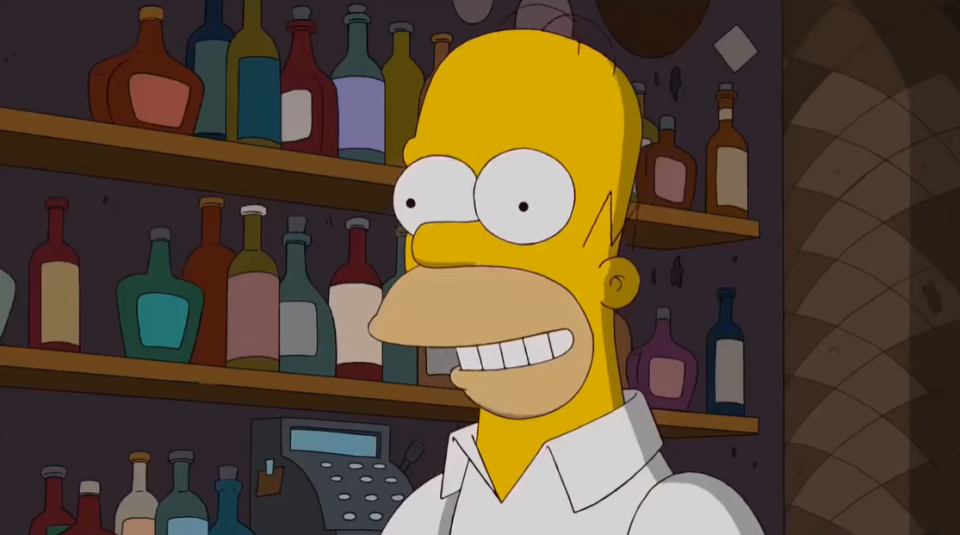
In casting a Deaf voice actor, The Simpsons could have broken the mould in more ways than one – not only making history with its representation, but moving away from the music-centred narratives popularised through recent successes such as Sound of Metal and CODA.
Instead, in having a hearing person write about Deaf people, we fail to platform stories in which ableism is the problem and suggest we are unable to speak for ourselves. To use Homer Simpson's "D'oh!" to describe this failure would be putting it far too politely.
The Simpsons is available to watch on FOX in the US and streams on Disney+ in the UK.
You Might Also Like

